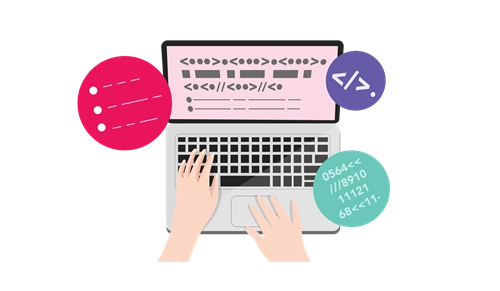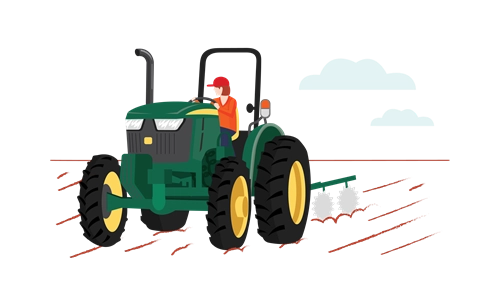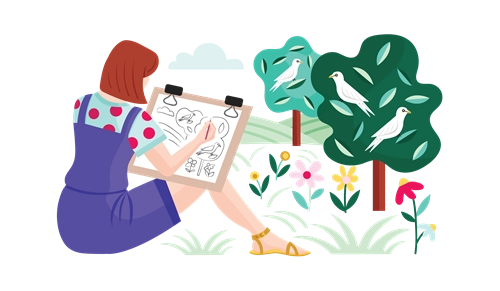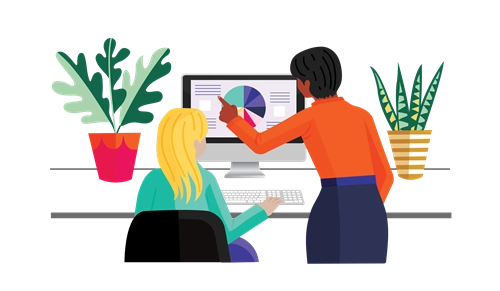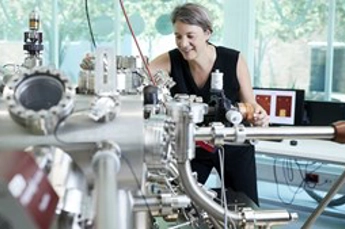Encouraging a growth mindset
Overview
How you think about yourself is just as important as any innate ‘talent’ or skills for success, especially for women and girls in STEM.
I’ve failed. I’ll never be good enough,’ thought one girl. While sitting right next to her, another thought, ‘The project failed. What can I change to make it work next time?’
What sets these two apart is not their ability or potential, but how they think. Professor Carol Dweck, an internationally renowned psychologist, says how we think about ourselves impacts our careers, relationships and happiness. It’s best to believe we can learn, evolve and find success for ourselves (called a ‘growth mindset’) rather than believing we are born with limited talents or intelligence that won’t change (‘fixed mindset’).
Take someone like Ally Watson, CEO and co-founder of Code Like a Girl – a startup that teaches girls to code through events, camps and workshops. Ally was repeatedly (for two years!) rejected by art school, but she didn’t see that as an innate shortcoming on her own part. Instead, she changed tack and tried computer science where she discovered her creative side married perfectly with her problem-solving skills – and her career as a software developer began.
What does Ally think?
‘I am of the belief entirely that your qualities and skills can be cultivated through effort, strategy and support from others. Computer scientists are not born, they are made.’
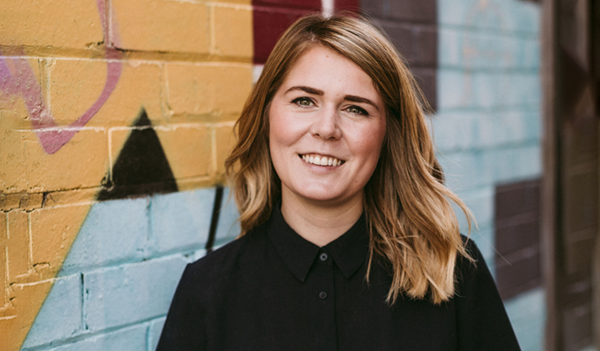
Be a life-long learner
Ally started Code Like a Girl to meet other women and inspire girls and women to build technology, which she says has limitless possibilities. At the camps and workshops, Ally sees growth mindsets in most participants – but not all. ‘Some need support in manoeuvring over from fixed to growth thought patterns,’ she says.
‘We teach the girls to let go and enjoy the journey and experience of learning rather than fixing themselves on the outcome.
‘Often girls are conditioned to strive for perfection and when they don’t “get it” right away their first instinct is to quit.
‘A growth mindset is critical to the career of a coder, with technology moving so fast you have to embrace being a life-long learner,’ she says.
Stay positive
Dr Jane Hunter, a researcher and education expert from the University of Technology, Sydney, wants to see more girls believing in themselves and keeping positive about what they can do in STEM subjects.
‘My research shows that in primary school, children’s mindsets are still growing. Most students are curious about what they are learning. They are inspired and interested to see what they can do with subjects like science or maths in projects and challenges,’ she says.
‘Girls need to keep this open mindset as they go into high school, and remember how relevant STEM is to everyday problem-solving.’
Jane recommends cultivating your own growth mindset by learning about and being inspired by other women in STEM. People like:
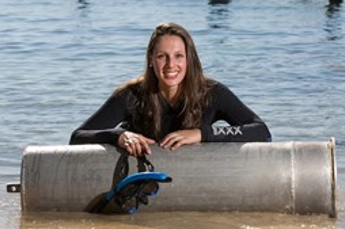
Dr Vanessa Pirotta
A marine biologist whose fascinating research involves gathering whale snot to study their gut health.
Find out more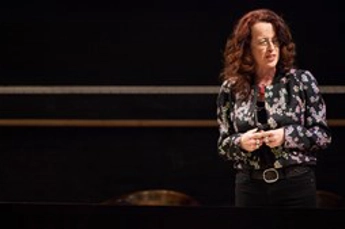
Professor Genevieve Bell
A 'techno-anthropologist’ looking at the ethical questions around artificial intelligence.
Find out moreAlly suggests checking out Ayah Bdeir, founder of education start-up littleBits and Aussie coder/designer Melanie Huang, founder of creative tech workshops Technecolour.
Know someone else doing awesome things in STEM? ‘Interview them, do a podcast, take photographs, write a blog!’ says Jane.
Have fun and get together with other girls.
‘Women are responsible for many important discoveries. They’ve done the hard yards and history hasn’t always recorded this. Watch the movie Hidden figures, it’s a great reminder of the profound contributions of women in STEM,’ Jane says.
